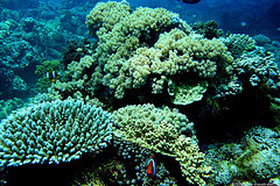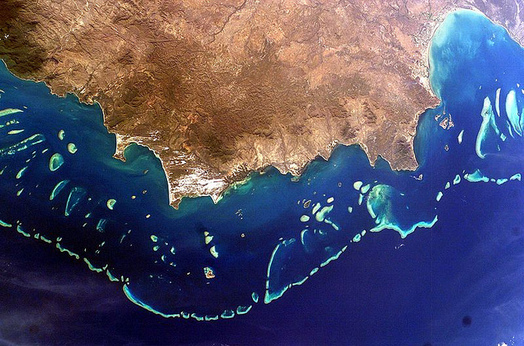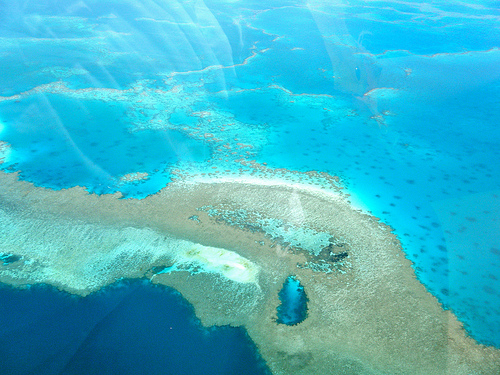That’s pretty much all that I expected marine biology to be, so you can see why I never went down that path.
Even so, I’ve always been enchanted by the ocean.
One happy day I travelled to Queensland with my dad and brother to visit the Great Barrier Reef, one of the seven natural wonders that Australia proudly claims. -->
Never mind, I reassured myself, one day I’ll be back to see you, Great Barrier Reef.
Except that I haven’t been back. Not yet, anyway.
And if events foreshadowed in this article come to pass, I may never get a chance to see the Reef in its prime.
That would be devastating. For my own selfish reasons, sure, but more importantly because the Reef is home to millions of life forms, supporting one of the most diverse ecosystems in the world – an ecosystem now threatened by destruction due to over-development in the area.
The Great Barrier Reef is listed as a World Heritage site, which should afford it a high level of protection, but the Australian government has approved a number of coal and gas port expansions within the area over the last few years. There are grave concerns this is damaging the ecosystem.
The Reef we see today has taken thousands of years to form (that's being conservative), and I can't help but wonder, how long will it take to destroy?
The National Geographic paints a gloomy picture of the Reef’s future, using the example of toxic materials causing an outbreak of disease and a decline in critically endangered species (such as sea turtles and in-shore dolphins) within the reef.
On a positive note, there has been at least one step in the right direction. The Great Barrier Reef Marine Park Authority has delayed the decision to dump 3 million cubic metres of toxic dredge into the reef, after a wide-spread public campaign involving GetUp and other organisations.
But this is not the end of it - it’s simply hitting the pause button on one risky project, which does not operate alone.
If, like me, this issue is close to your heart, consider writing a letter or signing this petition to convince The Great Barrier Reef Marine Park Authority that more action is needed. They are currently using this delay to assess any damage that the project may cause. This is a good opportunity to show that many Australians won’t stand for destruction of the reef.
For a planet covered in blue, we sure know how to take advantage of the ocean, stripping it of precious resources and paying no attention to chemicals seeping in to destroy complex ecosystems that we all rely on. Soon it will be too late, the damage will be irreversible.
No doubt it will take much more than a letter to make a difference, but it’s worth a shot and good to see that some progress is being made.



 RSS Feed
RSS Feed
